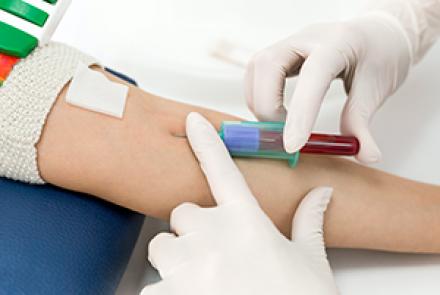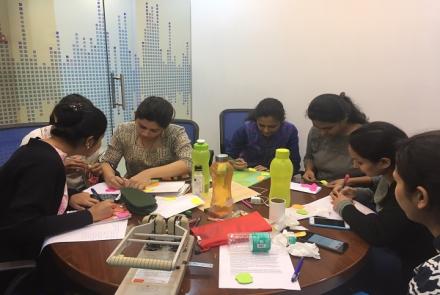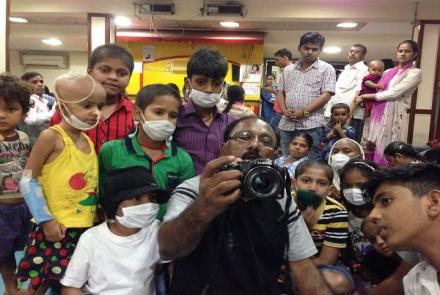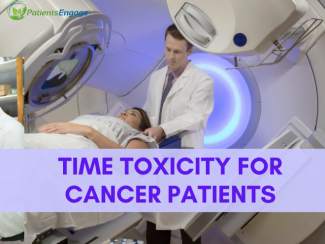
Patients with advanced cancers often contemplate the time burden of their cancer care. What does this exactly entail? Dr Arjun Gupta, an Oncologist and Researcher, recently wrote a paper about Time Toxicity for Cancer patients. He helps us understand this new concept and how it can affect quality of life for patients.
What is ‘’time toxicity’’?
We have seen tremendous progress in oncology in the past few decades. Yet, for advanced solid cancers, average survival benefits offered by new treatments are usually in the order of weeks or a couple of months.
The amount of time spent in pursuing cancer treatments can be substantial. Time is spent in frequent visits to clinic, for labs, for scans, for infusions, to see the doctor, the travel and parking time, time in waiting rooms, the time spent on hold with the annoying insurance company, the time spent in the ER, in a 3- day hospitalization. Time is also spent by care partners driving and waiting with patients, taking time off work, the time with schedulers on the phone. All this adds up. This is what we term ‘’the time toxicity of cancer treatment’’.
Why is it important?
We have demonstrated that for some treatments-- the loss of time incurred receiving such treatments may be more than the modest survival gains offered by the treatment.
Time toxicity is most applicable to people with advanced cancer who face treatment decisions in the context of limited time. Patients want to know where and how they will spend their time, not just how much time they might gain.
How can time toxicity guide informed decision making?
Consider Ms. S, a 80-year-old woman, a retired nurse, a loving grandmother. She has been diagnosed with pancreatic cancer. She knows her time is limited. Her goals are to maximize time at home and spending time with her grandchildren. She needs to decide between chemo or no chemo.
She will view treatment differently if she knew that on average, 4 of her 8 months alive would be spent away from home (e.g., in infusions and in the hospital) if she received chemo, but that all of her 6 months alive would be spent at home if she pursued no chemo.
Currently, trials in oncology do not report time toxicity. Clinicians lack information to guide patients on choices.
What are the measures of time toxicity?
The measure we propose is ‘’days with physical health care system contact’’. Any day in which a patient has any contact with the health care system, whether that be for a 30-minute blood draw, a 3-hour procedure, a 6-hour chemotherapy infusion, a 12-hour visit to the urgent care center, or an overnight stay in the hospital is treated the same. It's a day with physical health care system contact. We recognize that not all of these are the same but for the patient and their care partner, these often represent an entire day’s loss.
As a corollary, days not spent with health care contact are home days. So, in essence, overall survival, or the time from diagnosis to death, is nothing but the sum total of ‘’time toxicity’’ or days with health care system contact, and ‘’home days.’’
This metric recognizes that oncology care is delivered in multiple settings. It's delivered in frequent trips to the outpatient clinics and infusion centers, and patients often require inpatient admissions for rest and rehabilitation. It is practical and can easily be measured.
There are a couple of things that we need to keep in mind while thinking about this metric. The first is that people with cancer are often sick because of underlying cancer, and health care system contact by itself is not a bad thing. We need to separate the additional time imposed by a specific cancer treatment over and above the time toxicity of cancer itself. Second, we need to keep in mind that decreased health care contact or decreased time toxicity could represent poor access to care and could widen disparities in health care access.
Ideally, clinical trials should report time toxicity of treatments, and these can be compared across treatments.
In your opinion, what should be the way forward for clinicians and patients?
The main thing missing from the time toxicity science right now are data— data on time toxicity. Clinical trials currently do not report the time toxicity of treatments. That is essential information for clinicians to have, to be able to discuss treatment options with patients including the impact of time toxicity. We are working towards this aim.
The entire article is cited below:
Gupta A, Eisenhauer EA, Booth CM. The Time Toxicity of Cancer Treatment. J Clin Oncol. 2022 Mar 2:JCO2102810. doi: 10.1200/JCO.21.02810.
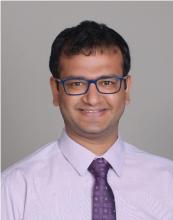
Bio:
Dr. Arjun Gupta is an Assistant Professor at the University of Minnesota, Minneapolis, USA. He is a gastrointestinal oncologist, a symptom management enthusiast, and a health services researcher. His research specifically examines cancer care access and delivery, the costs of cancer care, and the hidden burdens imposed on and faced by people with cancer and their caregivers while receiving this care.


